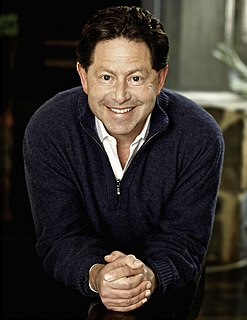A Quote by Marc Benioff
I don't look at business as a zero-sum game. I don't. I've never seen it play out that way in our industry, and I think you innovate and you add value, deliver value back to customers, and you get value back from the world.
Related Quotes
SDN is a major shift in the networking industry. At Juniper, we think the impact of SDN will be much broader than others have suggested. It will redefine networking and create new winners and losers. We're embracing SDN with clearly defined principles, a four-step roadmap to help customers adopt SDN within their business, and the networking industry's first comprehensive software-centric business model. We're incredibly excited about the value that SDN will deliver to our customers and are committed to leading the industry through this transition.
Federal transfers are not even a zero-sum proposition; they are a negative-sum proposition, leaking value at every step of the way, thanks to the costs of collecting federal tax dollars, then trickling them back out to the states' own costly bureaucracies via federal paper-pushers who write and oversee grant programs.
I am a Prince," he replied, being rather dense. "It is the function of a Prince—value A—to kill monsters—value B—for the purpose of establishing order—value C—and maintaining a steady supply of maidens—value D. If one inserts the derivative of value A (Prince) into the equation y equals BC plus CD squared, and sets it equal to zero, giving the apex of the parabola, namely, the point of intersection between A (Prince) and B (Monster), one determines value E—a stable kingdom. It is all very complicated, and if you have a chart handy I can graph it for you.
Of God's love we can say two things: it is poured out universally for everyone from the Pope to the loneliest wino on the planet; and secondly, God's love doesn't seek value, it creates value. It is not because we have value that we are loved, but because we are loved that we have value. Our value is a gift, not an achievement.
Intrinsic value can be defined simply: It is the discounted value of the cash that can be taken out of a business during its remaining life. The calculation of intrinsic value, though, is not so simple. As our definition suggests, intrinsic value is an estimate rather than a precise figure, and it is additionally an estimate that must be changed if interest rates move or forecasts of future cash flows are revised.
People, materials, facilities, money, and time are the resources available to us for conducting our business. By applying our skills, we turn these resources into useful products and services. If we do a good job, customers pay us more for our products than the sum of our costs in producing and distributing them. This difference, our profit, represents the value we add to the resources we utilize.


































